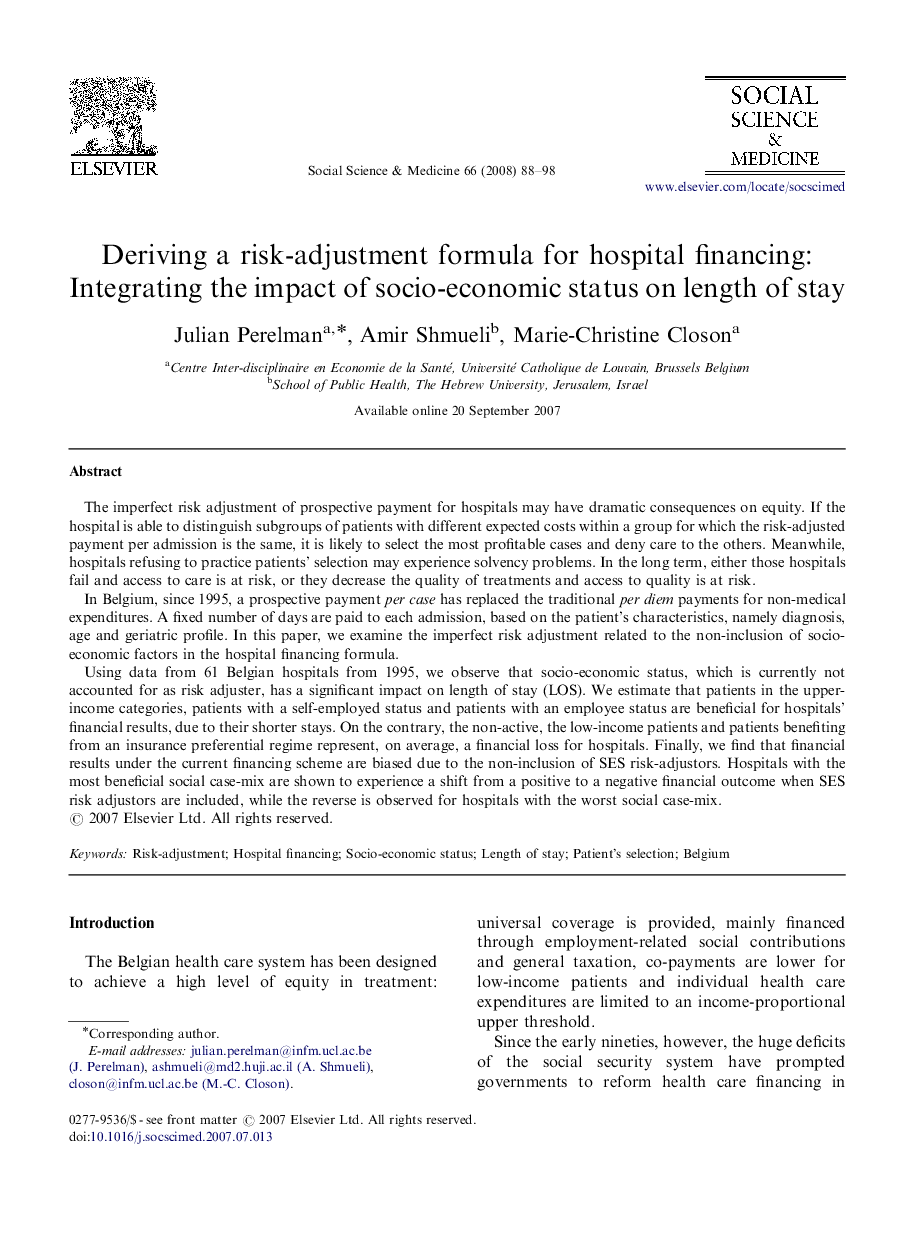| Article ID | Journal | Published Year | Pages | File Type |
|---|---|---|---|---|
| 10472228 | Social Science & Medicine | 2008 | 11 Pages |
Abstract
Using data from 61 Belgian hospitals from 1995, we observe that socio-economic status, which is currently not accounted for as risk adjuster, has a significant impact on length of stay (LOS). We estimate that patients in the upper-income categories, patients with a self-employed status and patients with an employee status are beneficial for hospitals' financial results, due to their shorter stays. On the contrary, the non-active, the low-income patients and patients benefiting from an insurance preferential regime represent, on average, a financial loss for hospitals. Finally, we find that financial results under the current financing scheme are biased due to the non-inclusion of SES risk-adjustors. Hospitals with the most beneficial social case-mix are shown to experience a shift from a positive to a negative financial outcome when SES risk adjustors are included, while the reverse is observed for hospitals with the worst social case-mix.
Related Topics
Health Sciences
Medicine and Dentistry
Public Health and Health Policy
Authors
Julian Perelman, Amir Shmueli, Marie-Christine Closon,
